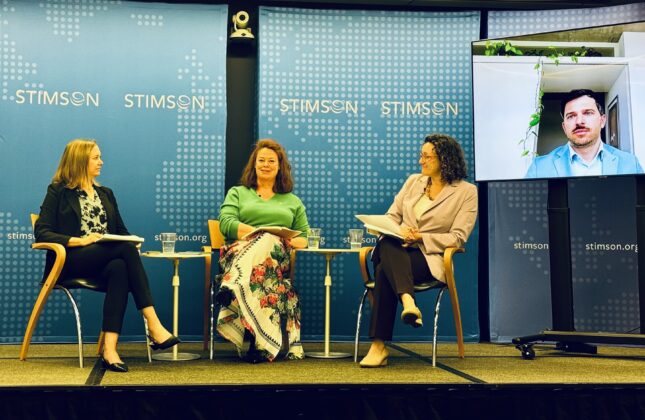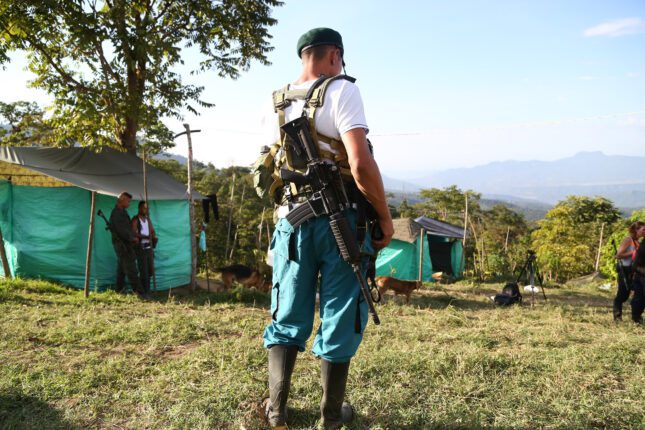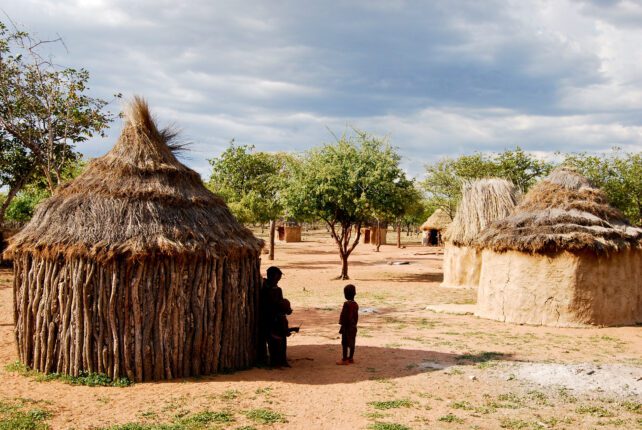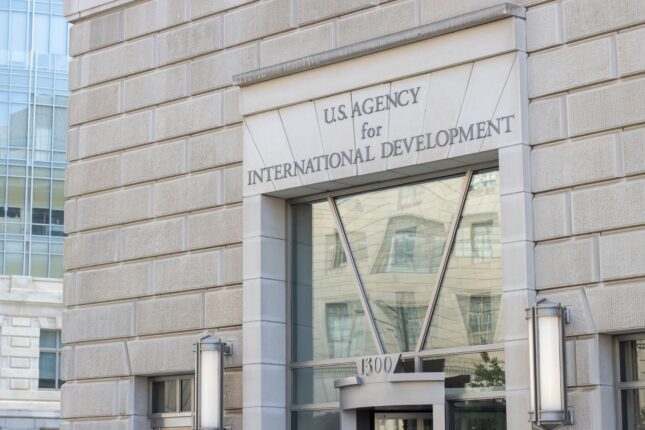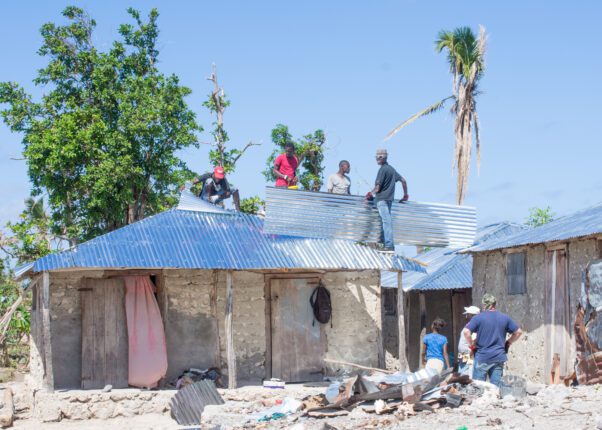-
From Readiness to Resilience: Strengthening Institutions for Climate Action
›November 12, 2025 // By Stephanie SpeckThis article was adapted from Stephanie Speck’s remarks at the 2025 Berlin Climate Security Conference.
When I arrived in Mogadishu in 2013 to set up and lead the Office of the President’s communication and media department, I had the privilege of being invited to breakfast with the President. As I made my way through the layers of security leading to the presidential residence, I noticed an older woman walking behind me—cradling a chicken under each arm. She followed closely, undeterred by the checkpoints that stopped others.
-
Closing the Climate Finance Gap in Fragile States
›November 11, 2025 // By Madelyn MacMurrayA massive flood in Somalia killed hundreds of people, and displaced tens of thousands more. Yet the survivors faced a vexing prospect when they tried to return home: Al-Shabab had moved in.
Stephanie Speck, Head of Special Initiatives at the Green Climate Fund, observed at a recent Stimson Center event that Shabab’s new levies meant that residents could not to move back to farm their land.
-
Zambian Women Take the Lead in Adapting Food Systems to Climate Change
›Women play vital roles as actors and innovators in food systems worldwide. In many societies, they are the primary food producers, accounting for between 60% and 80% of the national food stock. Women are also deeply engaged in other stages of the food value chain, from processing to consumption. Their multiple roles provide them with specific abilities that strengthen food systems during times of crisis.
-
Rebel Governance in an Age of Climate Change
›July 30, 2025 // By Elisabeth Gilmore, Kathleen Cunningham, Leonardo Gentil-Fernandes, Reyko Huang, Danielle F. Jung & Cyanne E. Loyle
In Myanmar’s resource-rich Kachin State, deforestation linked to illegal logging and mining has surged over the past decade. While the national government struggles to assert control, the Kachin Independence Organization (KIO)—a political organization seeking autonomy for Kachin State in Myanmar—has also stepped in to regulate land use, restrict timber harvests, and manage permits. These activities serve to conserve local ecosystems and extract revenue. KIO’s environmental governance is strategic, aiming to bolster civilian support and consolidate territorial control. It is also shaping how communities cope and adapt to climate change.
-
Somalia’s New Climate Roadmap as a Blueprint for Peace
›
Somalia’s new Nationally Determined Contribution (NDC)—the country’s roadmap for climate mitigation and adaptation—does more than outline the country’s climate ambitions. It recognizes the connections between climate change and conflict and charts a course for peace.
-
Plotting the Future of U.S. Foreign Aid
›
When Secretary of State Marco Rubio formally declared the “era” of USAID over on March 28, 2025, it represented an extraordinary sea change for US foreign aid deployed over the past six decades.
Yet the world has changed dramatically since the U.S. Agency for International Development (USAID) was established by the Foreign Assistance Act of 1961 in the middle of the Cold War. So, there is every reason to thoughtfully consider what foreign aid should look like today as we navigate an era of Great Power Competition (GPC).
-
In the Wake of a Tropical Cyclone: Turning to Violence or Building Peace?
›
“It seems like the news is always bad, right?” observed retired climate and atmospheric scientist James Kossin in a BBC interview last autumn.
Kossin was describing how climate change is weakening the wind shear patterns that have helped lessen the impacts of tropical cyclones in the United States. And, indeed, there is mounting evidence for his observation.
-
ECSP Weekly Watch | March 17 – 21
›
A window into what we’re reading at the Wilson Center’s Environmental Change and Security Program
Canal Projects Endanger Water Security in Pakistan’s Indus Delta (Al Jazeera)
Dozens of villages in the Indus Delta have been submerged by the encroaching sea over recent years, pushing thousands to migrate inland. Now, local residents in Pakistan fear that new canal projects may further exacerbate water shortages in the region.
Showing posts from category adaptation.



